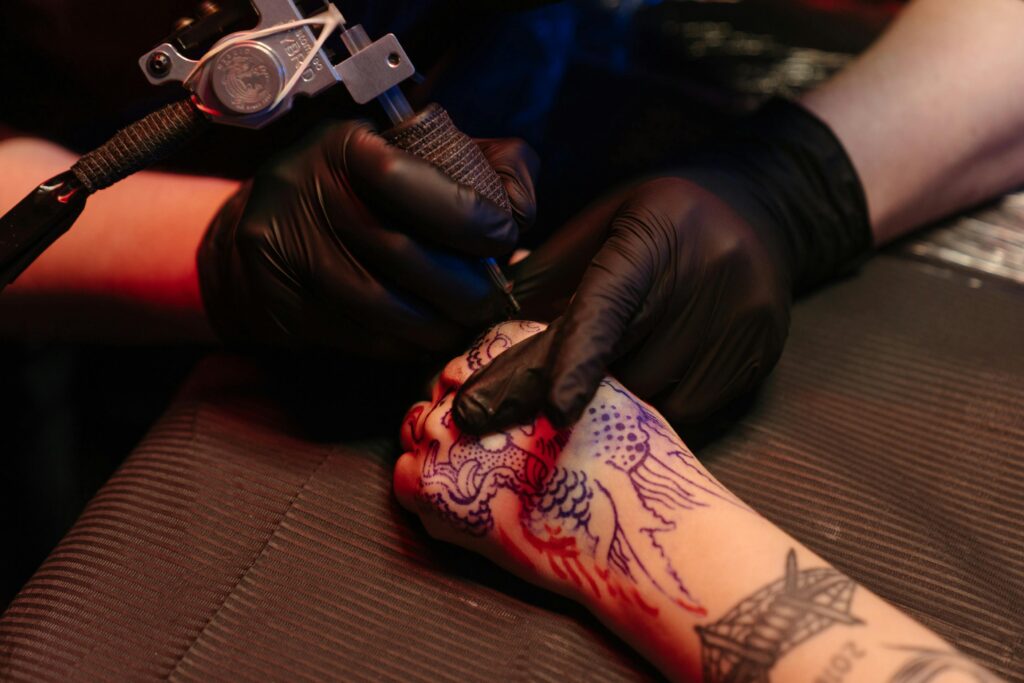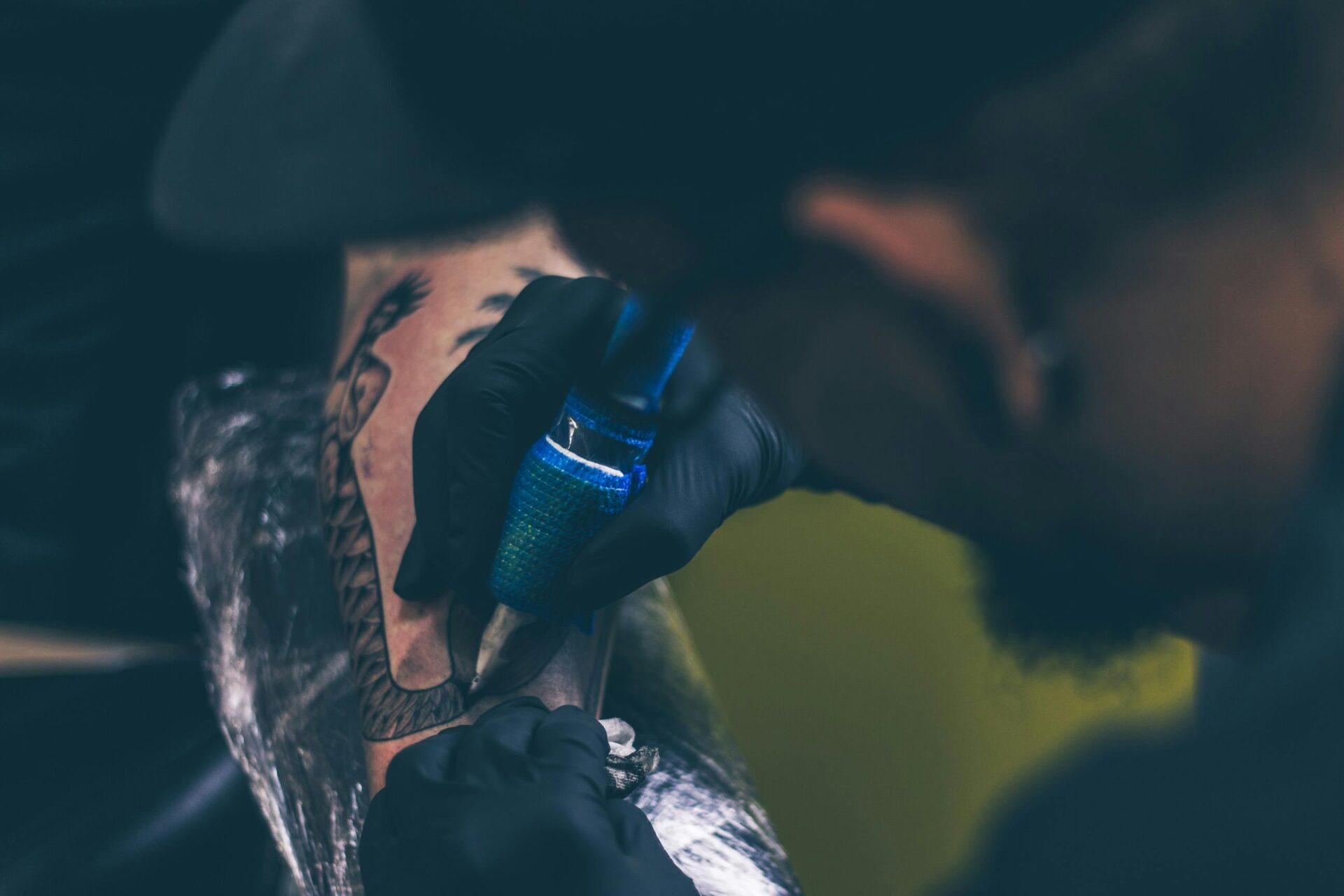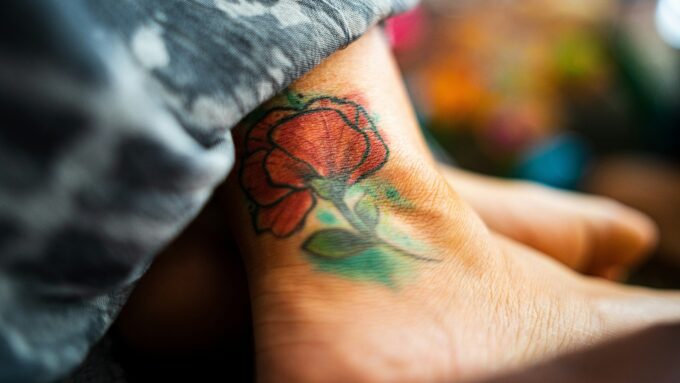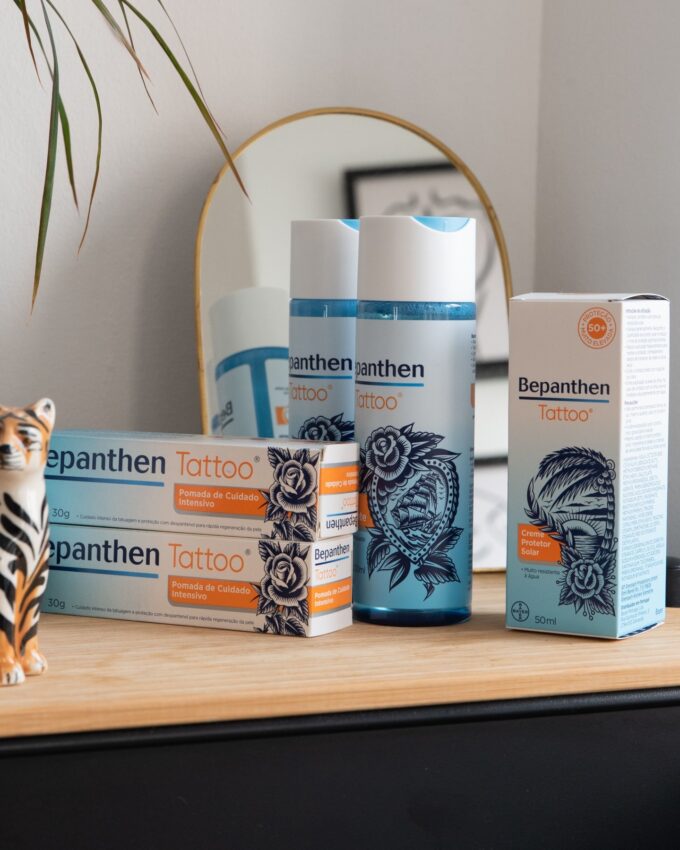Tattoos are a popular form of artistic and personal expression, but before taking the plunge, it is crucial to consider possible allergic reactions. The skin is a sensitive organ, and the ink and other materials used in tattoos can cause adverse reactions in some people. In this article, we'll explore what you need to know about tattoos and allergies.
Why do tattoo allergies happen?
Tattoo allergies are usually reactions to the pigments or chemicals present in the inks. Colored pigments, especially reds, yellows, greens and blues, are more likely to cause reactions. In addition, these allergies may be due to the presence of heavy metals such as mercury, chromium or cobalt in some dyes, as well as preservatives and additives used to keep the ink stable. In some cases, there may also be reactions to the latex present in the tattooist's gloves.

Types of allergic reactions
Allergic reactions to tattoos can manifest themselves in a variety of ways. Contact dermatitis is one of the most common and includes redness, itching and swelling in the tattooed area. Phototoxic reactions, which make the skin more sensitive to the sun, can also occur, especially in tattoos with yellow and red inks. Some people may develop granulomatous reactions, characterized by small bumps in the tattoo area, or even keloids, which are raised scars that appear in predisposed individuals.
How do you know if you are prone to a reaction?
If you have a history of skin allergies or reactions to certain metals or products, it is advisable to consult a dermatologist before getting a tattoo. One way to prevent problems is to perform a patch test, which involves applying a small amount of ink to the skin to watch for reactions. Also, you can talk to your tattoo artist about the ingredients in the inks he or she uses to make sure they do not contain substances to which you may be sensitive.

What to do if you have an allergic reaction
If you experience redness, swelling, itching or other symptoms after getting a tattoo, it is essential to consult a physician. A dermatologist can identify the cause of the reaction and recommend appropriate treatment, which may include corticosteroid creams or antihistamines to relieve symptoms. It is important to avoid scratching to avoid worsening the irritation or causing infection and to follow the instructions of the health care professional.
Tips to prevent problems
Before getting a tattoo, do your research on the tattoo artist and make sure he/she is an experienced professional working in a sanitized environment. Follow aftercare recommendations, such as keeping the area clean and protected from the sun. Also, be well informed about the risks and ask all the necessary questions before making your decision.
If you are looking for more inspiration don't hesitate to take a look at Ink on Sky or if you want to keep up to date with the most important news of the sector visit our Magazink!
And now you can try for free our all-in-one tattoo studio and artist management software / app Ink on Sky Pro !

Ink on Sky – The Home Of Tattoo
Contact us




